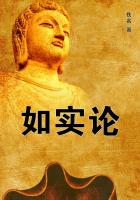Edward I. is remembered by us chiefly for the struggle he carried on with the Scotch Baronage for the feudal suzerainty of that kingdom, and the centuries of animosity between the two countries which that struggle drew on. But he has other claims to our attention besides this.
At first, and remembering the ruthlessness of many of his acts, especially in the Scotch war, one is apt to look upon him as a somewhat pedantic tyrant and a good soldier, with something like a dash of hypocrisy beyond his time added. But, like the Angevine kings I was speaking of just now, he was a completely characteristic product of his time. He was not a hypocrite probably, after all, in spite of his tears shed after he had irretrievably lost a game, or after he had won one by stern cruelty. There was a dash of real romance in him, which mingled curiously with his lawyer-like qualities. He was, perhaps, the man of all men who represented most completely the finished feudal system, and who took it most to heart.
His law, his romance, and his religion, his self-command, and his terrible fury were all a part of this innate feudalism, and exercised within its limits; and we must suppose that he thoroughly felt his responsibility as the chief of his feudatories, while at the same time he had no idea of his having any responsibilities towards the lower part of his subjects. Such a man was specially suited to carrying on the tendency to bureaucratic centralization, which culminated in the Tudor monarchy. He had his struggle with the Baronage, but hard as it was, he was sure not to carry it beyond the due limits of feudalism; to that he was always loyal. He had slain Earl Simon before he was king, while he was but his father's general;
but Earl Simon's work did not die with him, and henceforward, while the Middle Ages and their feudal hierarchy lasted, it was impossible for either king or barons to do anything which would seriously injure each other's position; the struggle ended in his reign in a balance of power in England which, on the one hand, prevented any great feudatory becoming a rival of the king, as happened in several instances in France, and on the other hand prevented the king lapsing into a mere despotic monarch.
I have said that bureaucracy took a great stride in Edward's reign, but it reached its limits under feudalism as far as the nobles were concerned. Peace and order was established between the different powers of the governing classes; henceforward, the struggle is between them and the governed; that struggle was now to become obvious; the lower tribe was rising in importance; it was becoming richer for fleecing, but also it was beginning to have some power;
this led the king first, and afterwards the barons, to attack it definitely; it was rich enough to pay for the trouble of being robbed, and not yet strong enough to defend itself with open success, although the slower and less showy success of growth did not fail it.
The instrument of attack in the hands of the barons was the ordinary feudal privilege, the logical carrying out of serfdom; but this attack took place two reigns later. We shall come to that further on. The attack on the lower tribe which was now growing into importance was in this reign made by the king; and his instrument was--Parliament.
I have told you that Simon de Montfort made some attempt to get the burgesses to sit in his Parliament, but it was left to Edward I. to lay the foundations firmly of parliamentary representation, which he used for the purpose of augmenting the power of the Crown and crushing the rising liberty of the towns, though of course his direct aim was simply at--money.
The Great Council of the Realm was purely feudal; it was composed of the feudatories of the king, theoretically of all of them, practically of the great ones only. It was, in fact, the council of the conquering tribe with their chief at its head; the matters of the due feudal tribute, aids, reliefs, fines, scutage, and the like--in short, the king's revenue due from his men--were settled in this council at once and in the lump. But the inferior tribe, though not represented there, existed, and, as aforesaid, was growing rich, and the king had to get their money out of their purses directly; which, as they were not represented at the council, he had to do by means of his officers (the sheriffs) dealing with them one after another, which was a troublesome job; for the men were stiff-necked and quite disinclined to part with their money; and the robbery having to be done on the spot, so to say, encountered all sorts of opposition:
and, in fact, it was the money needs both of baron, bishop, and king which had been the chief instrument in furthering the progress of the towns. The towns would be pressed by their lords, king, or baron, or bishop, as it might be, and they would see their advantage and strike a bargain. For you are not to imagine that because there was a deal of violence going on in those times there was no respect for law; on the contrary, there was a quite exaggerated respect for it if it came within the four corners of the feudal feeling, and the result of this feeling of respect was the constant struggle for STATUS on the part of the townships and other associations throughout the Middle Ages.
Well, the burghers would say, "'Tis hard to pay this money, but we will put ourselves out to pay it if you will do something for us in return; let, for example, our men be tried in our own court, and the verdict be of one of compurgation instead of wager of battle," and so forth, and so forth.













